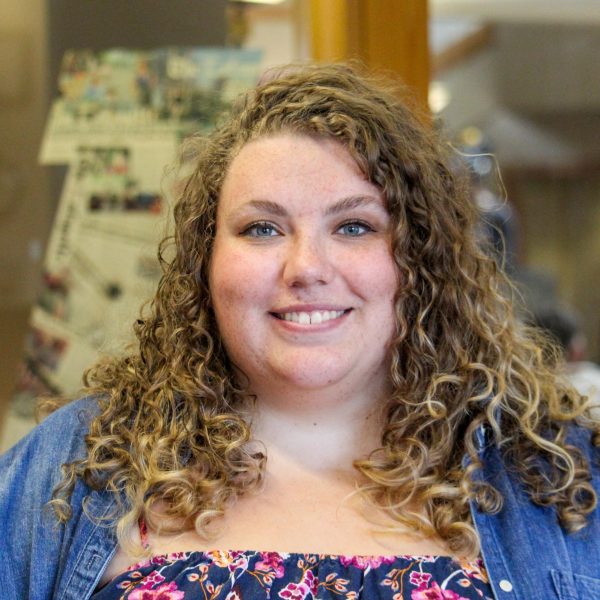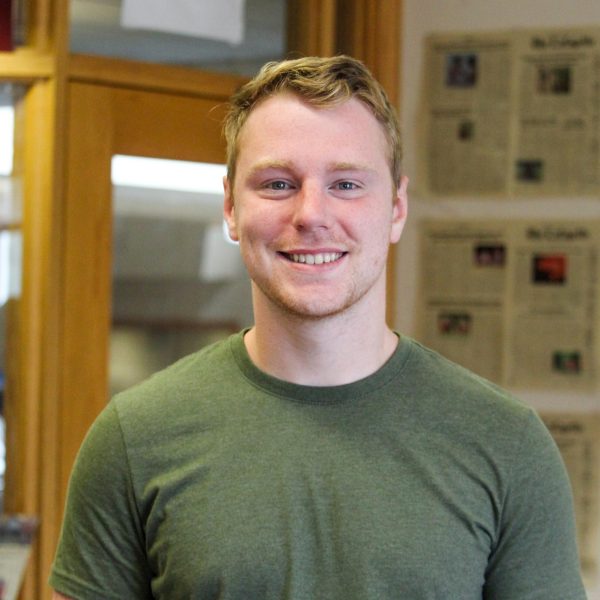The College Writing Program (CWP) is in a self-described period of transition. With a new coordinator on staff and plans for expansion in the coming years, the leaders of the program are looking to engage a wider range of students through the creation of a writing center.
Last year, the CWP was the subject of an external review conducted by writing faculty and educators from other institutions. The reviewers expressed surprise at the structure of Lafayette’s program, as it is not typical of similar institutions. According to an email from English Professor Tim Laquintano, director of the CWP, “we were one of the only schools among our peer institutions that does not have a writing center.”
The creation of a writing center, and with it the expansion of the CWP, will be a process spanning several years and requiring a number of renovations. One of the first steps of this transition process was the hiring of Emma Hetrick as the CWP Coordinator. Hetrick joined Lafayette’s staff this summer after completing a dual graduate degree in English and information studies at the University of Texas.
Hetrick’s role strikes a balance between administrative and instructive work. According to Hetrick, her main duty is oversight of the writing associate (WA) program.
The WA program pairs trained student tutors with students in writing-intensive classes to aid with writing assignments. WAs are most often found in first-year seminar (FYS) classes to help students transition into college writing.
According to Professor and Head of English Christopher Phillips, involvement in the FYS classes is one of the strengths of the program.
“The WA program is just quintessential Lafayette. There aren’t very many places that will train peer tutors and then embed them in courses the way that we do. That’s really unusual,” Phillips said.
Phillips’ experience collaborating with WAs has been overwhelmingly positive.
“There are so many layers to that, that really enhance our academic experience, but also, it’s just extraordinary job experience for students as well,” he said.
Dylan Gooding ‘23, a mentor WA in his second year in the program, agrees that inserting WAs into FYS classes is an asset of the program.
“The FYS program works because all freshman students are required to take it, and it gives a unified sense for all the freshmen,” he said.
The CWP is not part of the English department, but has been historically staffed by English faculty. The department is now in the process of hiring another writing and rhetoric specialist who would become part of what Phillips calls the “cycling of CWP administration.” Once this occurs, different members of the English department will cycle through the roles of director and assistant director of the program.
“That gives us the biggest writing studies faculty for any liberal arts college in the country, which is pretty awesome and a pretty big step for us. That’s something that enhances the curriculum and the department, but also enhances the capacity of what the program at the college level can do,” Phillips said.
The pivot towards a writing center, as opposed to the current CWP system of drop-in hours, would require a redistribution of labor amongst WAs.
WAs used to have two semesters of consistent work when their services were also used for the Values and Science/Technology (VAST) courses that were formerly part of the curriculum. Once these courses were no longer a requirement, there was much less available work for WAs, as FYS classes only run in the fall.
Evening out the workload across two semesters is one of the many beneficial effects the program’s staff predicts a writing center will have.
“A lot of WAs who were with FYS [classes] in the fall of 2021 are not WAs now, because they get uninvolved in the program during the spring semester. I’m optimistic that a writing center would make some changes,” Gooding said.
The program’s staff hopes the existence of a writing center will allow for more consistent relationships between WAs and writing students.
With the extended hours and consistent scheduling of WAs that a writing center would provide, students could make appointments with the same WA multiple times if they have a positive experience. Also, students could receive more sustained guidance on semester-long projects.
For example, Hetrick believes this could benefit students working on honors theses.
“Some of the heavier hitting assignments that might need more than one meeting with a WA would benefit,” she said.
Furthermore, the writing center could encourage students to continue engaging with the CWP after their first semester.
“I’m a senior, and I still need help with my writing,” Gooding said. “Hopefully, this will help break the stereotype that only first-years need help with their writing.”
“I think that something that was missing for me as an undergrad was really having a community and a place to go to trade [writing] with other people,” Hetrick said. “I’m thinking … we’ll be able to do some informal but routinely occurring gatherings where students can come and talk about their writing.”
Ultimately, one of Hetrick’s main goals, both currently and once the writing center comes to fruition, is to foster a community of writers.






















































































































Michael Mazza • Jan 17, 2023 at 6:51 pm
Looking for a writing coach to help complete a lifetime project.